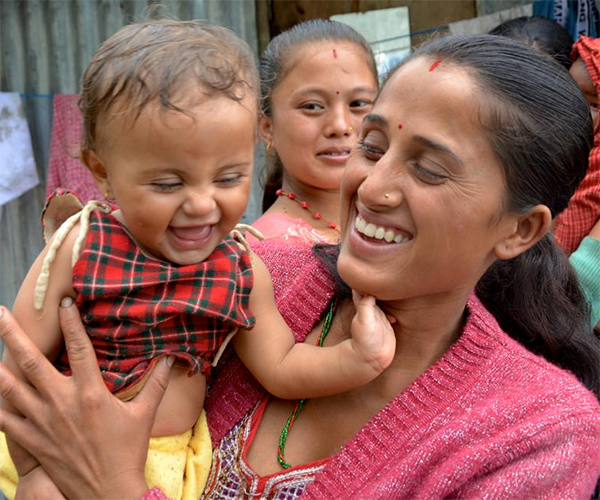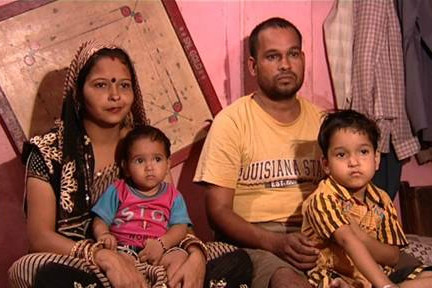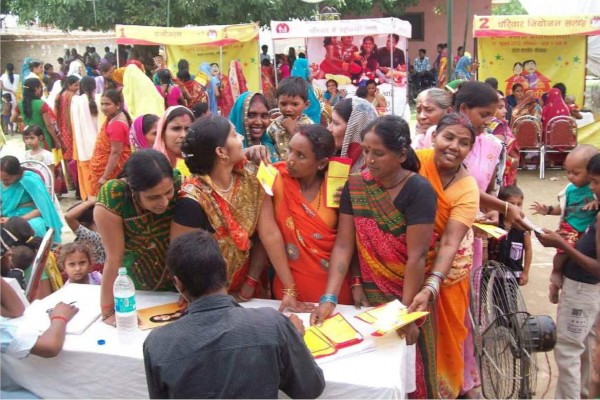If couples share responsibility for family planning, happiness will follow. This is the message of the “One small decision ….can bring unlimited happiness” (Ek chota sa faisla de khushiyan hazaar) campaign.
Launched by the Urban Health Initiative (UHI) in March 2009, a five-year, Bill and Melinda Gates Foundation-funded project led by Family Health Initiative, JHU∙CCP and Thompson Social | JWT have developed three films for the “One Small Decision” campaign.
The films were created in response to the gap between awareness and action with respect to family planning methods and services among urban poor that was uncovered in extensive research that CCP undertook in Uttar Pradesh in July and August 2011.
Uttar Pradesh, one of the most populated states in India, has a total fertility rate that is higher than the country average (3.8 children per woman as compared to 2.7), a lower contraceptive prevalence rate (29% compared to 46%) and a high unmet need for family planning.
CCP’s research determined that there are problems both in uptake of services due to crowded hospitals and unresponsive service providers, and in decision-making at the household level. Men consider family planning method to be the domain of women and women, largely powerless within the household, are afraid to take action for fear of social repercussions.
The “One Small Decision” films engage the audience with memorable stories while communicating the importance of choosing the right contraceptive method at the right time during different life stages. UHI believes that by increasing timely and correct information, BCC efforts like this campaign can help couples make critical decisions about family planning.
The three films that comprise the “One Small Decision” campaign are airing on national, regional and state television and radio channels from November 2011 through January 2012.
Film One: Shifting from traditional family planning methods to modern methods
Mr. & Mrs. Rajesh Kumar
The first film seeks to move women away from unreliable traditional family planning methods. Mr. Rajesh Kumar promises his wife that he will sambhal lunga, i.e., withdraw in time. Knowing how unreliable this method is, his wife consults a doctor who tells her to take control of the situation by adopting a modern, long-acting contraceptive method. Mr. Rajesh Kumar is pleasantly surprised when he spouts his old promise, only to be told by his smiling wife that “maine sambhal liya hai” – This time I have managed it!
Film Two: Introducing male sterilization as a method to limit family size
Munna Ki Kahani
The second film addresses men who want to limit their family size by introducing permanent no scalpel vasectomy as an alternative to continuing with inconsistent use of condoms. Munna is used to having his way and is surprised when his wife tells him that she does not want any more children. Fed up with the hassle of typical family planning methods, he consults a friend who has undergone NSV and accompanies this friend to meet the doctor. The doctor reassures him that with NSV, Munna will still enjoy sex with his wife, and there will be no effect to his virility and physical strength but he will avoid the bother of using a temporary contraceptive method. Following the doctor’s advice, Munna has the small five-minute procedure and is happy with the results.
Film Three: Postpartum female sterilization
Mr. Bunty and his wife
The third film addresses couples who are expecting a child who they believe to be the final addition to their family. The message in this film is that such families should undergo sterilization at the time of delivery. Mr. Bunty, loves doing things in installments. When he takes his expectant wife for a check up, the doctor suggests post partum female sterilization if the family is complete. Mrs. Bunty recognizes the benefits of undergoing female sterilization immediately postpartum and she convinces her husband that this will save time, money and effort.





